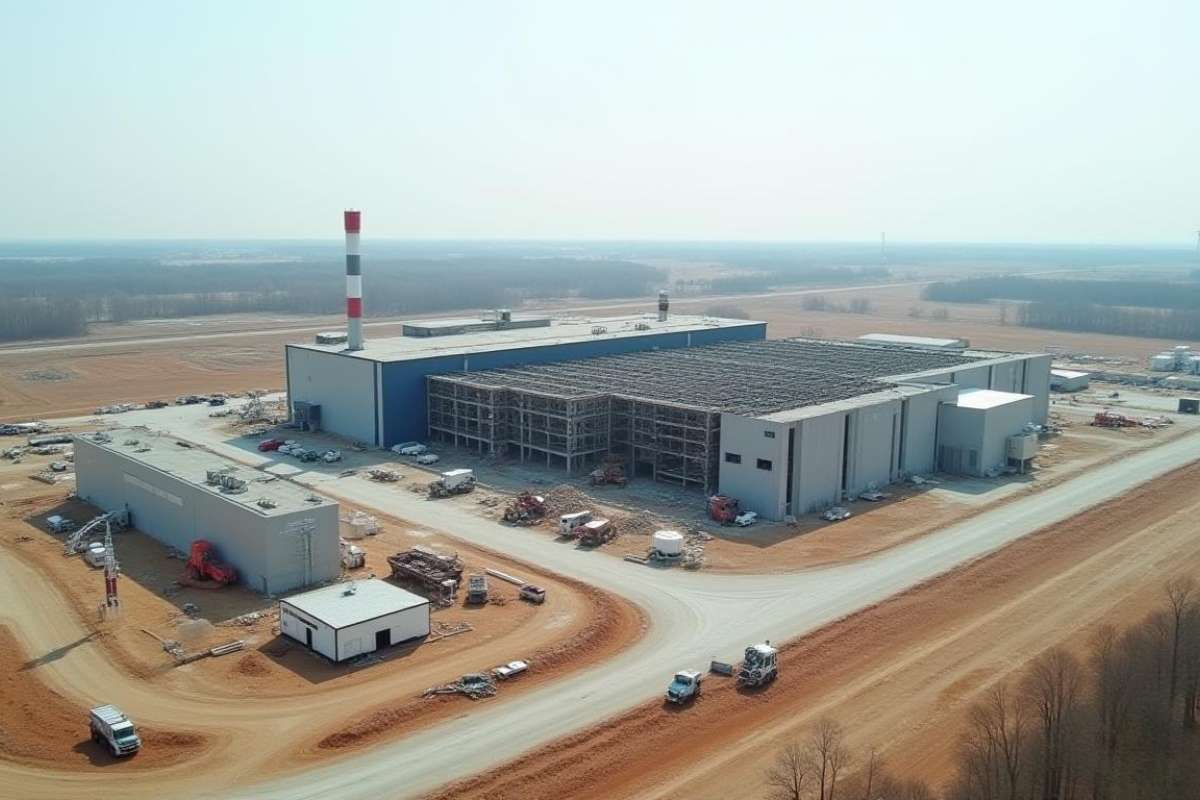Ford Motor Company has reaffirmed its commitment to constructing the Ford Michigan Battery Plant, a $3 billion electric vehicle (EV) battery plant in Marshall, Michigan, despite looming legislative threats that could strip the project of crucial federal tax incentives. The automaker announced that it would push forward with the factory’s completion and opening, even if Congress enacts a Republican-backed bill aimed at curbing support for projects involving Chinese technology.
The Ford Michigan Battery Plant, located roughly 100 miles west of Detroit, is set to use battery technology licensed from Contemporary Amperex Technology Ltd. (CATL), a leading Chinese battery manufacturer. Initially, Ford counted on financial relief from tax credits introduced by the Inflation Reduction Act (IRA), a flagship climate and energy policy spearheaded by former President Joe Biden. According to Ford executives, these credits were expected to offset a significant portion of the Ford Michigan Battery Plant’s costs. However, the potential repeal of these incentives now presents a serious challenge.
Despite the uncertainty, Ford Vice President Lisa Drake stressed the company’s resolve during a tour of the site. “We don’t want to back off on this facility,” she said. “When we invest, we stick behind our investments. Ford is a company that will weather the storm until we get there.”
Legislation Could Jeopardize Federal Support and Jobs
Republican lawmakers are advancing a bill that would bar federal subsidies for battery plants using materials or technology from nations deemed adversarial, including China, Iran, North Korea, and Russia. Former President Donald Trump has voiced support for the proposal, positioning it as a counter to Democratic initiatives promoting EV development.
Should the legislation pass, the Ford Michigan Battery Plant could be disqualified from receiving federal support due to its reliance on CATL’s technology. The IRA not only provides consumer tax credits for electric vehicle purchases but also offers significant financial incentives to automakers building battery infrastructure in the U.S. Ford estimates that these credits could have covered up to 25% of the Marshall plant’s costs.
The stakes are high for American labor as well. Dave Green, regional director of the United Auto Workers (UAW), warned that revoking EV tax credits could have wide-reaching consequences for the industry. “Repealing clean vehicle tax credits alone could reduce electric vehicle sales as much as 40 percent by 2030,” Green noted, adding that such a move could lead to idled assembly lines and scrapped battery plant projects. “The irony is stark and painful: thousands of battery workers have just voted to unionize… now congressional Republicans are voting to kill those very same jobs.”
A Strategic Bet on Affordable Battery Technology
The Ford Michigan Battery Plant is expected to begin operations next year, bringing approximately 1,700 new jobs to the region. It will manufacture lithium iron phosphate (LFP) batteries—a more cost-effective alternative to conventional nickel-cobalt batteries commonly used in U.S. EVs. While LFP batteries offer a shorter range, they are cheaper and avoid reliance on expensive and scarce materials like nickel and cobalt.
Although the LFP battery technology was initially developed in the United States, its large-scale commercialization has been led by Chinese firms like CATL, now the world’s leading battery producer. This makes Ford’s reliance on CATL’s technology particularly vulnerable to policy shifts targeting foreign involvement.
Despite the political turbulence, Ford appears determined to stay the course. Whether or not federal incentives remain available, the automaker is positioning its Michigan facility as a crucial step in expanding affordable EV production and securing a long-term foothold in the evolving battery landscape.







